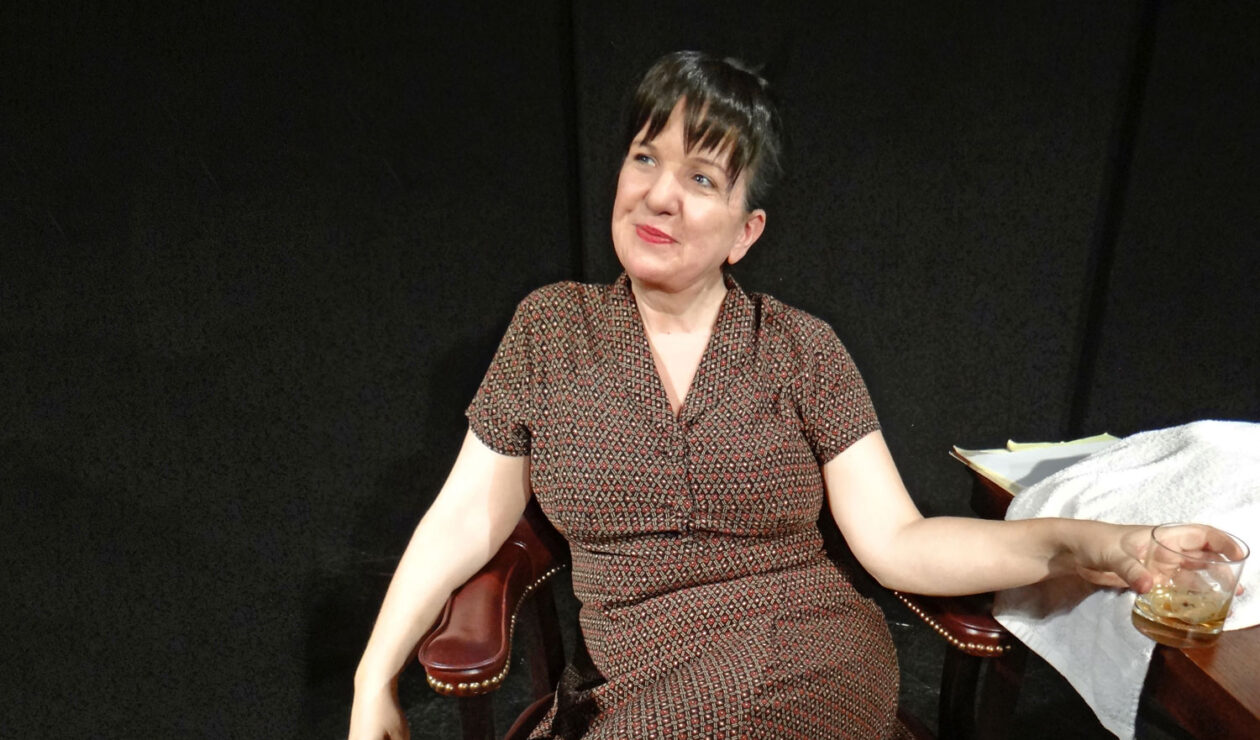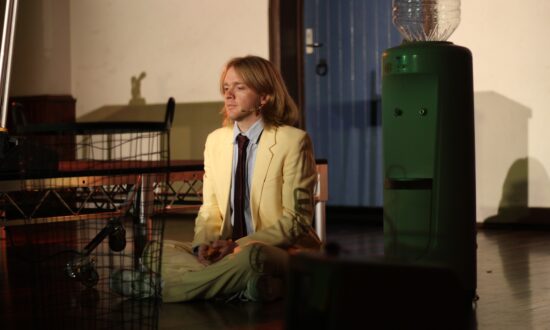The Portable Dorothy Parker draws its title from the writer’s first collection, garnered from works published in Vanity Fair, The New Yorker and literary magazines.
It is 1943, and an emissary from Viking Press is visiting Parker to hasten the selection process. The setting is her apartment – a chair and table with a lamp, a typewriter, and a stack of articles, poems, literary miscellany waiting for decisions. And then, across the stage, a well-stocked drinks trolley, ready to provide copious libations.
Parker picks up a page, maybe reads a few lines and then begins to reminisce, quibble, reflect, and mull her life in writing and the writing of her life.
It is a terrific device and Annie Lux has plenty to choose from: such as Parker’s marriages, her friendships with the humourist Robert Benchley and the demon critic Alexander Woollcott, escapades at The New Yorker, and liaisons with literary lions such as Hemingway and F Scott Fitzgerald. As well, there is the celebrated and infamous round table lunch held every day for 10 years at the Algonquin Hotel.
Regrettably, in performance, this complex, sad, gaudy, often drunken woman, and her fearless, quixotic engagement with the male-dominated world of letters, is somehow lost in translation. In the role of Dorothy, Margot Avery undoubtedly understands her mercurial, capricious personality, but does not succeed in conveying it.
It is commendable that Avery, and director Lee Costello, have not opted for a loud, abrasive rendering such as Jennifer Jason Leigh’s in Alan Rudolph’s best-forgotten, atrocious film Mrs Parker and the Vicious Circle. But in the Arch Theatre at Holden Street, Dorothy Parker is often not loud enough to even be heard.

Get InReview in your inbox – free each Saturday. Local arts and culture – covered.
Thanks for signing up to the InReview newsletter.
Lux’s text carries a lot of freight, laden with quips and supercilious phrasing. Parker is holding court, performing desperately to impress the unseen young person from Viking. Necessarily this requires a more heightened style for impact, in order to provide contrast to the more pensive asides, neurotic doubts and second thoughts which provide a parallel, even contrary, commentary.
In her muted, often inaudible, delivery, Avery replaces Parker’s self-serving oratory with a mixture of diffidence and indifference. Parker is weary and diminished, but Avery and director Costello have vitiated her energy and flair to the point of torpor.
Maybe a stage microphone intensifying the volume will restore some vitality to the production. At the moment, to use Parker’s own waspish comment, this performance runs the whole gamut of the emotions from A to B.
The Portable Dorothy Parker is playing at The Arch, Holden Street Theatres, from February 13 to March 17.
Read more 2024 Adelaide Fringe coverage here on InReview.
Support local arts journalism
Your support will help us continue the important work of InReview in publishing free professional journalism that celebrates, interrogates and amplifies arts and culture in South Australia.
Donate Here




